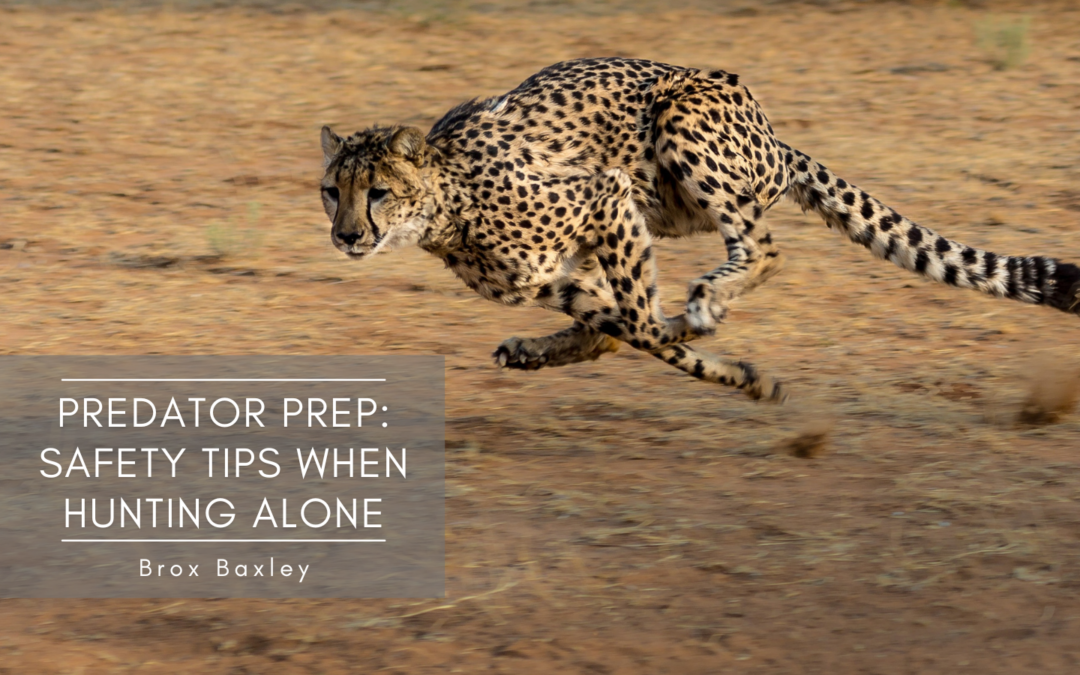Hunting alone can be an empowering and rewarding experience, offering the freedom to explore remote areas at your own pace. However, it also comes with unique safety risks, particularly when venturing into environments where predators, both human and animal, may be present. Proper preparation is key to ensuring that your solo hunting trip is not only successful but safe. Here are essential safety tips to keep in mind when hunting alone.
1. Inform Someone About Your Plans
Before heading out, always inform a trusted friend or family member about your hunting plans. Share details such as your hunting location, expected return time, and any alternate routes you may take. This is a crucial step in case of an emergency. Carry a satellite phone or emergency beacon if you’re venturing into remote areas without reliable cell service.
2. Carry the Right Safety Gear
When hunting alone, having the right safety gear is essential. Always carry a first-aid kit, including supplies for basic wound care, as well as items for stopping bleeding, such as a tourniquet. You should also have a multi-tool or knife for both field dressing game and addressing any potential emergency situations. Additionally, bringing a whistle or signal mirror can be invaluable if you need to alert someone to your location.
3. Be Aware of Your Surroundings
Whether you’re in bear country or the wilderness known for other predators, maintaining constant awareness is vital. Take note of tracks, scat, and signs of wildlife activity. Always be mindful of your surroundings and make your presence known in a non-threatening way, like talking or making noise as you walk through the woods to avoid startling animals.
If you’re hunting in an area with large predators (such as bears, mountain lions, or wolves), carry deterrents like bear spray. Learn how to use it effectively before heading out. Also, avoid hunting at dusk or dawn, when predators are more active, and ensure you have an escape route planned.
4. Stay on Established Trails
When hunting solo, it’s best to stay on well-established trails, especially if you’re unfamiliar with the terrain. Getting lost is a real concern when hunting alone, and navigating unmarked areas can be risky. Use GPS, a compass, and topographic maps to stay oriented. If you’re off-trail, always mark landmarks or use a trail marker to avoid losing your way.
5. Don’t Overexert Yourself
Solo hunters are at a greater risk of injury simply because help is farther away. Always know your physical limits and avoid pushing yourself too hard. Pace yourself while hiking or tracking game, and take breaks to rest and hydrate. If you’re successful in harvesting an animal, don’t try to drag or carry it alone if it’s too heavy. Consider breaking it down into manageable sections or seeking help if necessary.
6. Trust Your Instincts
Finally, one of the most important tips for hunting alone is to trust your instincts. If something doesn’t feel right, or if you’re feeling uncomfortable, it’s okay to abort the hunt. Your safety should always be your top priority, and no hunt is worth risking your well-being.
Conclusion
Hunting alone can be an enriching experience, but it requires careful preparation and a keen sense of awareness. By following these safety tips—informing others, carrying the right gear, staying aware, and respecting your limits—you can ensure your solo hunting trips are safe and enjoyable. With proper planning, the thrill of the hunt becomes even more rewarding when you return home safely, ready for the next adventure.

